May 14, 2025 | 20:43 GMT +7
May 14, 2025 | 20:43 GMT +7
Hotline: 0913.378.918
May 14, 2025 | 20:43 GMT +7
Hotline: 0913.378.918
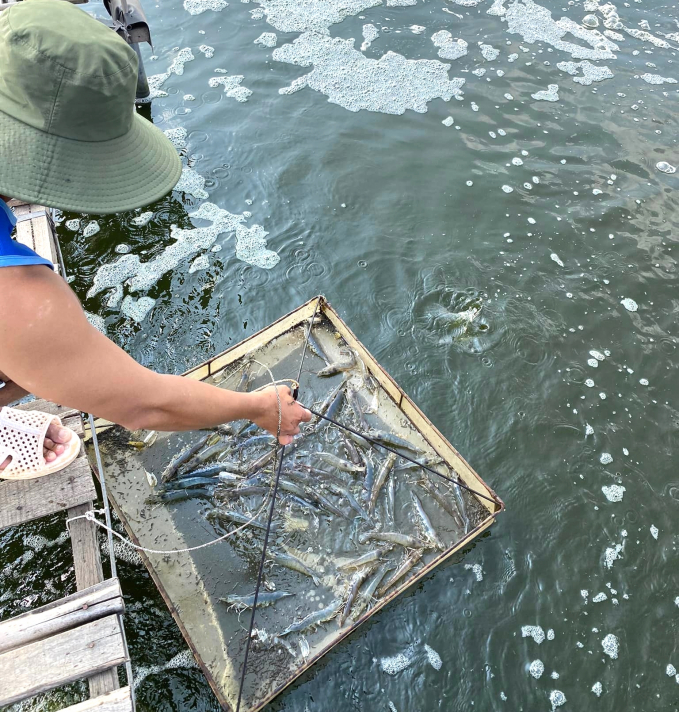
Shrimp farming using herbs yields outstanding productivity and quality.
Vietnam is a country with strengths in aquaculture and seafood processing for export. Particularly, the shrimp farming industry is creating a "push" for farmers and businesses to develop.
However, currently, shrimp farming is not entirely sustainable while posing many potential risks. So what could be the cause? Mr. Phan Thanh Thien, General Director of Truong Sinh International Scientific Development Co., Ltd. shared about the risks as well as orientation for the shrimp farming industry to develop more sustainably.
The seafood industry and particularly the shrimp farming industry are facing challenging problems such as: Exported shipments being returned due to poor product quality, as well as damages caused by diseases are still at a high level. As a large business operating in the seafood industry, how do you assess the risks that shrimp farming is currently facing?
In my opinion, export shipments are being returned due to poor product quality, as well as damages by diseases are caused by many different factors. Regarding the objective reasons, it may be due to climate change, complicated weather situation such as intense heat, prolonged heavy rain on a large scale, saltwater intrusion, erratic temperature changes, etc. have directly affected the ecosystem as well as the growth and productivity of shrimps.
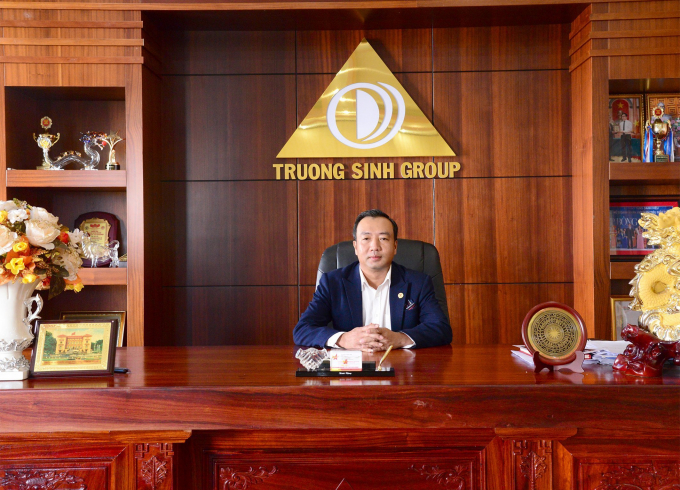
According to Mr. Phan Thanh Thien, shrimp farmers need to utilize herbs and biological products in place of antibiotic chemicals.
Regarding subjective reasons, the majority of farmers still mostly raise shrimp following the traditional method, they have not converted and invested much in newer farming models and techniques. Meanwhile, shrimp farming requires a great deal of knowledge, practical experience and good techniques. In addition, people have farming habits that can easily lead to unproductive shrimps such as: raising shrimp at too high a density, overusing an abundant of antibiotic chemicals causing drug resistance, degradation of the farming environment, etc.
To limit shrimps' disease infection and increase the success rate of the crops, what measures should we take in accordance with the current context?
“Water treatment before shrimp raising” and “prevention is better than cure” are sayings that I always keep in mind at all times. Reality has shown that, during the shrimp farming process, most farmers often don't pay attention to the matter of disease prevention for shrimps. Disease prevention is very important otherwise shrimps are susceptible to diseases, which can be difficult to treat and expensive.
Besides, many farmers choose to prevent diseases with antibiotics, leading to drug resistance and slow growth of shrimp, affecting productivity and quality of the crop. So our measure right now is to prevent shrimps' diseases in a sustainable way.
Accordingly, farmers need to utilize herbs and biological products in place of antibiotics, thereby helping the shrimps to prevent diseases better, absorb food thoroughly, and stabilize the pond environment. Especially, this method of farming can save treatment costs for farmers.
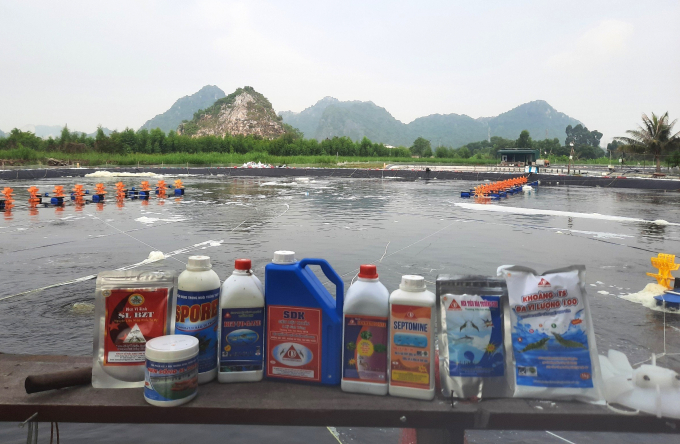
Truong Sinh herbal medicine is trusted by shrimp farmers in practice.
Currently, many shrimp farmers have successfully applied the herbal shrimp farming model. So in your opinion, will raising shrimps with herbs and probiotics become the key to sustainable aquaculture in the future?
Farming with herbs and biological products is becoming the "golden key" in developing a sustainable seafood industry. Currently, most of Truong Sinh's customers who used herbal products have given positive feedbacks and are committed to long-term use. Most of the products are highly praised such as: TS 999 for prevention of white feces disease, SDK bactericidal made from herbs, TS 1001, TS 1002, TR555 for treatment of liver diseases...
It is easy to see that herbal products can solve the challenges posed by antibiotics, prevent diseases for shrimp without creating a drug resistant, they are safe and promote outstanding growth and development in shrimps. The use of herbal products will build shrimp reputation on the international market, increasing profits for businesses and farmers.
Mr. Le Tan Dom, a shrimp farmer in Duyen Hai district (Tra Vinh), has been using Truong Sinh herbal products to prevent diseases for many years. As a result, compared to the previous application of antibiotics, the use of herbs helps shrimp to grow faster and evenly in size, with much less disease than before. In the latest crop, after only 3 months of farming, Mr. Dom raised 28 full grown shrimps, on a shrimp pond with a water area of only 1200m3, harvested with an output of 4 tons of shrimp.
As a successful large corporation in the field of producing aquatic drugs from herbs, how did Truong Sinh Group overcome difficulties during the pandemic and achieve success in the past year 2021?
For the past few years, despite facing certain difficulties, we saw them as opportunities to change our way of thinking and working. Accordingly, we changed our business strategy and continued to invest in machinery and equipment meeting GMP standards to improve the quality of our products.
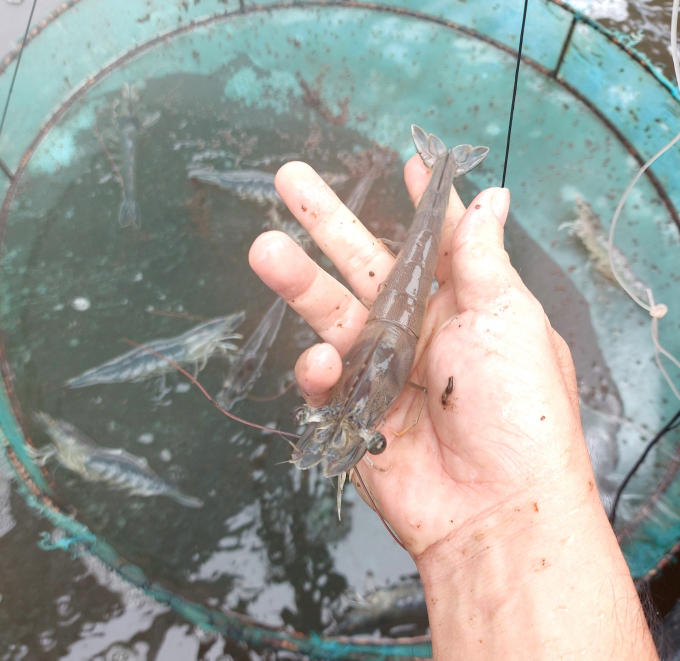
Shrimp always achieve high quality when herbal drug is used.
Despite the pandemic, demand for Truong Sinh's herbal medicine in aquaculture is still high, so investment in product quality is indispensable. With that determination, Truong Sinh Group overcame difficulties, stabilized production and business with a 20% increase in revenue compared to the previous year.
In 2022, we will continue investment in research to bring forward new products for the seafood industry, and also continue investment in expanding the herbal shrimp farming models. Our ultimate goal is not to simply sell products, but we also aim to provide the seafood market with environmentally friendly products, contributing to reinforcing the Vietnamese shrimp brands for sustainable development.
Thank you Sir!
Translated by Nguyen Hai Long

(VAN) Use of high-quality broodstock and biotechnology is regarded as the most effective approach to ensuring sustainable and economically viable shrimp aquaculture ahead of climate change and the emergence of increasingly intricate disease patterns.

(VAN) Carbon farming is a form of agricultural practices that helps absorb more greenhouse gases than it emits, through smart management of soil, crops, and livestock.

(VAN) This is a key content of the Memorandum of Understanding recently signed between the Vietnam Fisheries Society and Kunihiro Inc of Japan.

(VAN) To achieve the goal, local authorities and businesses in Kon Tum province have fully prepared the necessary conditions for the new Ngoc Linh ginseng planting season.
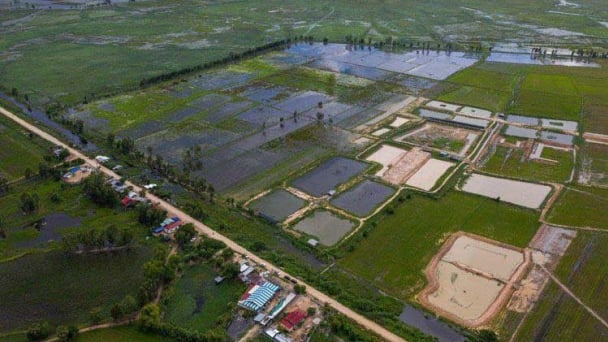
(VAN) Jiangsu province is gearing up to host training programs in Phnom Penh, the capital of Cambodia, this year to establish the Fish and Rice Corridor.
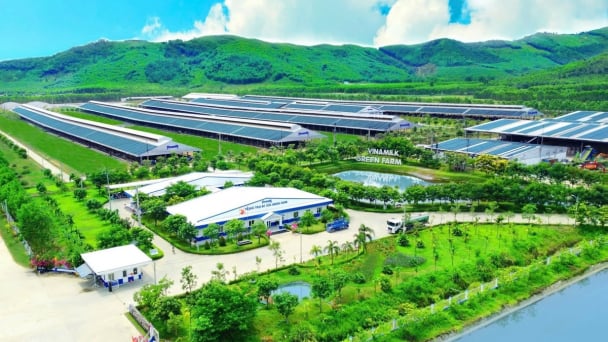
(VAN) Le Hoang Minh, representing Vinamilk, shared the company's experience in energy saving and green energy transition for production at a workshop held during the P4G Summit.
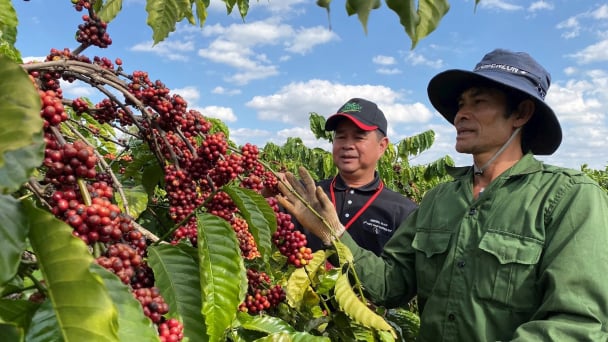
(VAN) Businesses emphasize fairness and equality when integrating social factors into their sustainable development strategies.